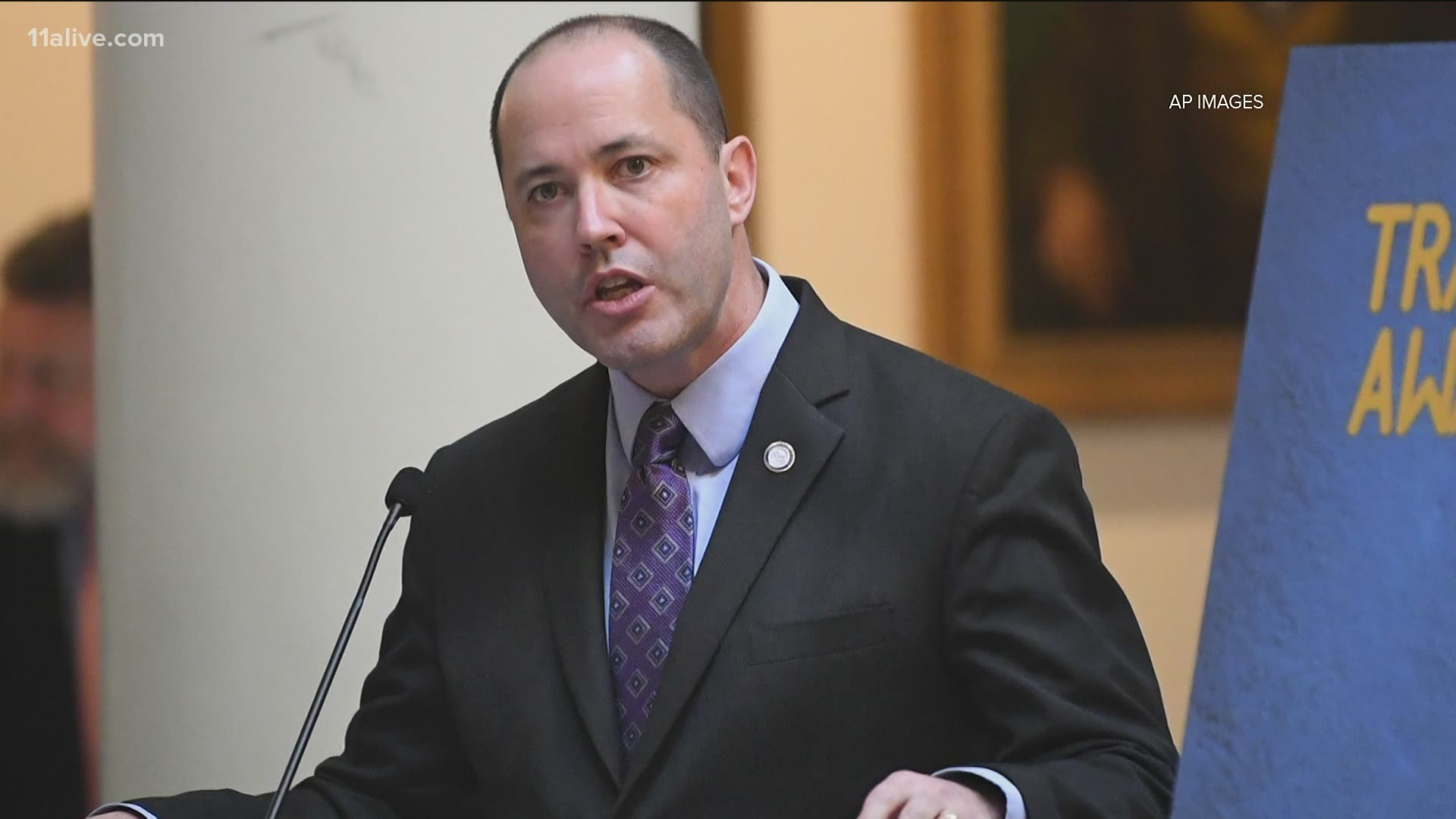ATLANTA — Georgia’s legislature has quietly expanded the role of the state attorney general in prosecutions. It’s part of the reason the office has embraced its new role of prosecuting the cases of so-called "Stop Cop City" protesters.
As Republican politicians have sought more state power to prosecute crimes, Georgia lawmakers have handed much of that power to the state attorney general’s office.
In the last 10 years, the Georgia attorney general has created prosecution units devoted to cyber crimes, gang cases, human trafficking and domestic terrorism.
Recently, the state had been partnering with the DeKalb DA to prosecute the public safety training center protest cases. Now, following a "difference in prosecutorial philosophy" according to DA Sherry Boston, the state will go forward alone.
"We’ve been prosecuting it from the beginning. We will continue to prosecute it," Attorney General Chris Carr said Monday. He declined to comment on Boston's decision to pull out of the so-called "Cop City" protest cases, but said it won’t substantially change how the cases are handled.
"We’ll move forward as the situation continues to unfold," Carr said, declining to estimate a timetable.
He added that the attorney general’s staff has increased to handle more investigations and prosecutions – as has its expertise. Georgia prosecutors have seen the change, said Pete Skandalakis, executive director of the Prosecuting Attorneys Council of Georgia.
"What people need to know is that the attorney general in Georgia has a very robust and very experienced prosecution team that works for him, and is perfectly capable of prosecuting cases like this," Skandalakis explained.
If and when the attorney general prosecutes the "Cop City" cases, state prosecutors would still have to pursue local grand jury indictments in DeKalb County, coordinating logistics with the DA’s office.
More about the training center and its opposition
The protest movement began with semi-permanent treehouse encampments in the forest in December 2021, and mushroomed after the law enforcement shooting death of a protester, Manuel Paez Teran, in January this year.
Officials have said Teran shot first at a Georgia State Patrol trooper as a clearing operation of the encampments was ongoing, then was killed in return fire. Teran's family and activists have strongly contested the official narrative. The lack of bodycam videos - which are not worn by state law enforcement officers such as GSP troopers or Georgia Bureau of Investigation agents - has left unresolved what exactly happened.
Several activists in the last few months have been arrested and charged with domestic terrorism after property was damaged at the development site. The protest groups have strongly disputed the characterization of their activity as extremist.
Additionally, three people with the Atlanta Solidarity Fund, which has supported the protest movement, were arrested and charged in May with financial crimes for allegedly misappropriating funds.
Those three people were granted bond by a DeKalb judge this month, saying he did not find the initial case against them very impressive. "There's not a lot of meat on the bones," the judge said during a hearing.
RELATED: Judge grants bond to organizers with Atlanta protest fund | 'There's not a lot of meat on the bones'
Where is the training center being built?
The plan is to build the facility on land - the old Atlanta Prison Farm complex - owned by the City of Atlanta and being leased to the Atlanta Police Foundation.
The protesters have opposed the facility on environmental and historical grounds, saying it would decimate one of the largest preserved forest areas in the city and desecrate historically Native American land of the Muscogee Creek people, who once lived in the woods and called it the Weelaunee Forest before being displaced by white settlers in the early 19th Century.
The project's backers - including the law enforcement community, Atlanta Mayor Andre Dickens and DeKalb County CEO Michael Thurmond - have argued it would improve training and community ties, framing it as an answer to police reform demands to eliminate contentious policing practices and reduce tensions between the police department and the public.
The construction of the facility is tentatively set to start in August, following approval this month of $33 million for construction of the project by the Atlanta City Council.

